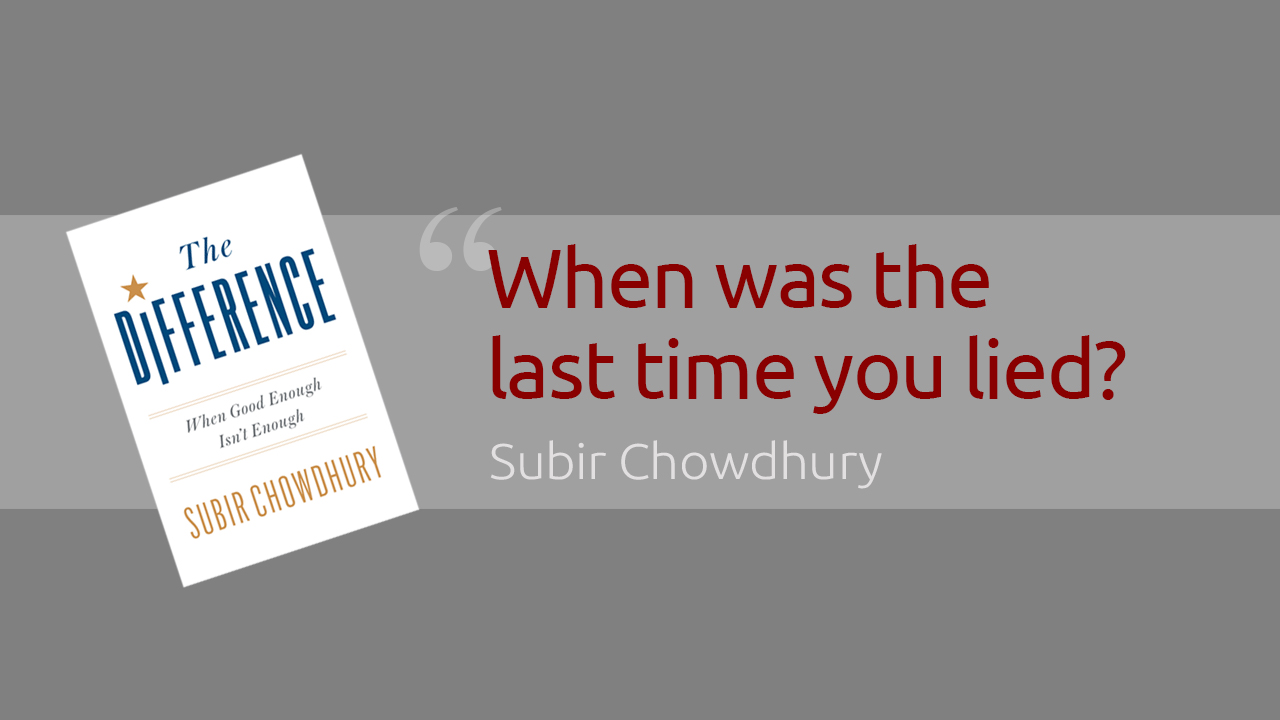Quality & Me
Subir shares short stories about what people do to make a difference everywhere they go. We can make huge contributions to the way we function as a society by standing out as an example within our own community: at work, at our places of worship, among our colleagues, friends, and family. All it takes is the courage to step up and being straightforward, thoughtful, accountable, and resilient.
None of us grows up and then suddenly starts lying. We develop a tendency toward telling fibs – and outward lies – at early age. Study after study shows that most us have lied at some point during our lives. By the time we’re adults, many people have made an art out of avoiding the truth.
When you choose to have a caring mindset, you are making a choice to tell the truth – the opposite of lying – regardless of how painful that truth may be. You need to embrace being honest, open, and straightforward. And you need to do this in every conversation and every interaction. At the office; at home; with friends and family, as well as strangers.
You know the expression, “the truth will set you free”? It’s true. Being truthful and hones is critical when it comes to having a caring mindset. And a caring mindset is the difference between failure and success. It leads to more healthy organizations, families and communities. Lying has severe consequences. If you take credit for someone else’s work, you are lying. That lying will cause people in your organization to underperform, leave the organization, or even sabotage future projects. As you can see, it causes both physical and emotional stress, and erodes profitability.
Organizations often have a mission statement that helps to communicate their values to employees and customers. But just as often, these organizations don’t honor them. They may talk about how much they care about their employees, but then place unrealistic goals and expectations on those same employees. In other words, these organizations lie. And if you lie in your mission statement, you’ll never recover. Employees will be angry, resentful, frightened, and disappointed. They may even start lying themselves.
When was the last time you lied? Be honest about your answer!



















